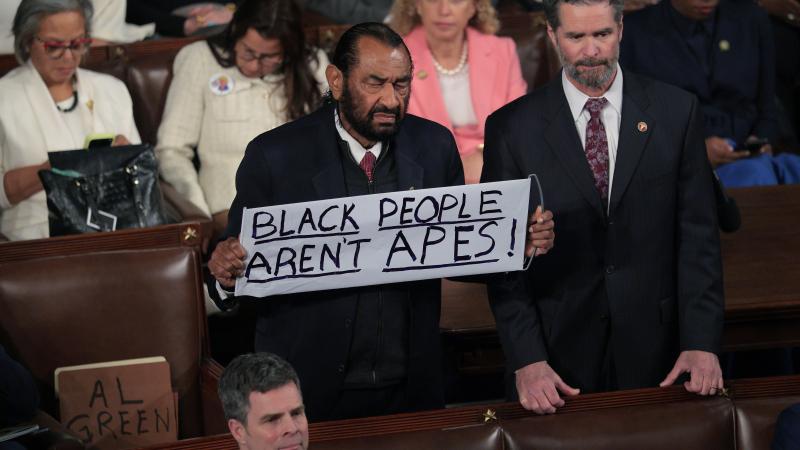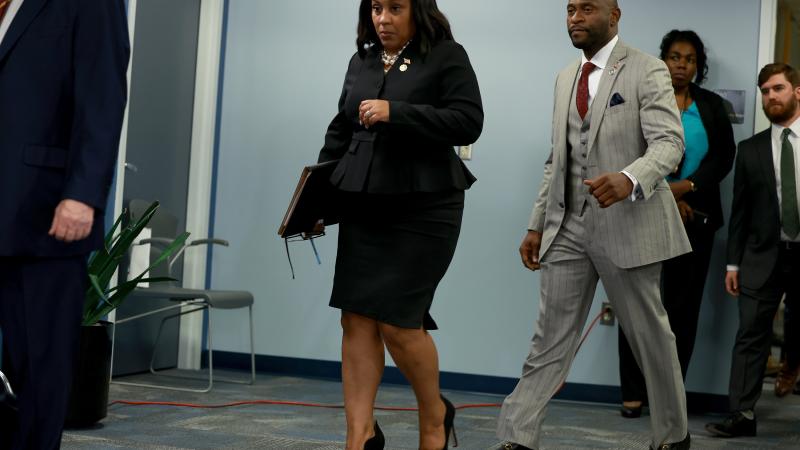Biden helped sink CIA nominee in 1970s with classified documents allegation
Then-Sen. Joe Biden had previously said he would help the CIA director nominee through the nomination process.
When President Joe Biden was a senator during President Jimmy Carter’s term, he reportedly used an accusation about the mishandling of classified documents to sink a nominee for director of the Central Intelligence Agency.
Classified documents from Biden's tenure as vice president were found in November, December and this month at his former office at the Penn Biden Center in Washington, D.C., and at his home in Wilmington, Del. A special counsel was appointed by Attorney General Merrick Garland last week to investigate the matter.
While Biden was a member of Senate Intelligence Committee, which was established after Watergate, he worked with Republicans to end the nomination of CIA critic Ted Sorensen as director of the agency, The Intercept reported.
Sorensen had admitted to taking classified documents for a biography of his longtime friend President John F. Kennedy and defended Pentagon Papers whistleblower Daniel Ellsberg.
Carter had nominated Sorensen, who didn’t have experience in foreign policy or covert ops, because he said he wanted an outsider for the CIA position as part of his pledge to reduce the agency’s power and budget.
Biden told Sorensen that he would help him with the nomination process. Sorenson recalled Biden leading him to believe that he had the senator’s “enthusiastic” support, saying that he was “the best appointment Carter has made.”
However, when Republicans went after Sorensen’s nomination, Biden dug up an affidavit Sorensen had written regarding classified documents.
The affidavit was never filed in court, but Sorensen had given it in Ellsberg’s case, where Sorensen noted that he, like many other officials in Washington, would take classified documents home to review and officials typically leaked much more sensitive documents to the press without being prosecuted.
Biden learned about the affidavit from a Republican colleague and believed it would be used to discredit Sorensen. A Biden aide found the affidavit, which combined with allegations that Sorensen was a pacifist and dodged the Korean War draft, hurt Sorensen’s nomination.
“It was like being blindsided by a truck,” Sorensen said, calling the campaign against him an effort where “many little dirty streams flowed together to make one large one.”
Biden spoke with Carter after confirming the document, saying, “I think we’re in trouble. I think it is going to be tough.” Carter then gave a defense of Sorensen’s comments regarding classified documents in a public statement, calling it “‘most unfortunate’ if frank acknowledgement of common practice should ‘deprive the administration and the country of his talents and services,’” according to a report from The New York Times at the time.
Biden went after Sorensen during his confirmation hearing, saying, “Quite honestly, I’m not sure whether or not Mr. Sorensen could be indicted or convicted under the espionage statutes,” questioning “whether Mr. Sorensen intentionally took advantage of the ambiguities in the law or carelessly ignored the law.”
Sorensen subsequently agreed to have his nomination withdrawn, but later said Biden should be awarded the “prize for political hypocrisy in a town noted for political hypocrisy.”
In August, Trump's Mar-a-Lago estate was raided by the FBI over classified materials from his tenure at the White House. Trump had previously complied with a subpoena and voluntarily handed over some classified materials before the raid.
Biden criticized Trump’s alleged mishandling of classified documents in September, saying it was “totally irresponsible.”
















